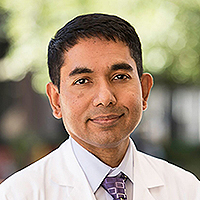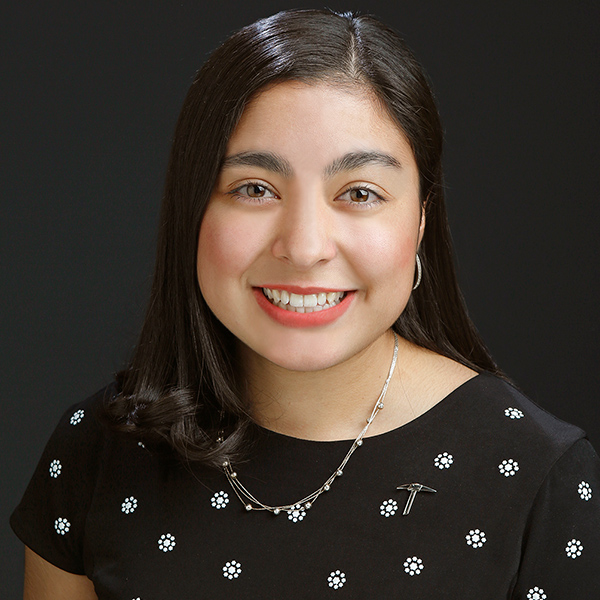Interview With Debabrata Mukherjee, MD, MS, FACC

Debabrata Mukherjee, MD, MS, FACC, is the chair of the department of internal medicine and chief of cardiovascular medicine at Texas Tech University Health Sciences Center El Paso. Prior to these positions, he was the Gill Foundation professor of interventional cardiology, professor of internal medicine and the director of the cardiac catheterization laboratory at the University of the Kentucky, and the director of the peripheral interventional program at the University of Michigan. Mukherjee received his internal medicine training at the Cleveland Clinic Foundation. Subsequently, he completed a fellowship in cardiovascular medicine and interventional cardiology also at the Cleveland Clinic Foundation. Mukherjee also completed a master's in clinical research at the University of Michigan and a certificate in business administration at the University of Kentucky Gatton College of Business.
For his extensive work as a clinician, educator and scientist, Mukherjee is the recipient of ACC's 2020 Distinguished Fellowship Award, in addition to the numerous research and career development awards he also received from the ACC. He is a member in the Marquis Directory of Who's Who and has been named as one of the Best Doctors in America for several years. Mukherjee has been an invited lecturer at several major meetings, authored more than 500 publications, edited nineteen textbooks on cardiovascular diseases and written more than 100 textbook chapters. He presently serves on several journal editorial boards and is an associate editor of ACC.org.
In the following interview, Mukherjee shares how he chose his path in cardiology, specifically interventional cardiology, and reflects on his most memorable milestones and mentors throughout his career. He also discusses his experiences with the ACC, shares his vision for the future of cardiology, provides advice for aspiring cardiologists and more.
What made you choose medicine over all the different fields?
During high school, I saw medicine as a profession where you could make a difference and have the opportunity to care for individuals helping them live happier, healthier lives. Another attraction for me was that medicine is one of the professions that provides constant mental stimulation and a continuous opportunity to learn and progress. Every year we learn new things, new concepts, and new ways to treat patients and prevent diseases. No other profession offers this. So, the combination of a mentally stimulating profession, the opportunity to care for others, and make a difference is what made me choose medicine.
How was your experience training as a medical doctor? When did you realize that you also wanted to pursue interventional cardiology and conduct research?
During all my training, medical school was probably one of my happiest experiences, giving me the opportunity to work with others and grow together. Also, the way I learned was primarily self-paced. Every evening, a few of us students and occasionally an attending would go to the wards, see patients and learn from each other. Regarding cardiology, very early during medical school, I was fascinated with the heart's physiology and complexity. Among the subspecialties of cardiology, interventional cardiology was an opportunity to make a difference immediately by helping someone in a life-threatening situation. Research is a way to continuously learn and to find solutions to questions I do not have an answer to.
Over the course of your path to becoming an academician and interventional cardiologist, what has been your most memorable milestones? Most memorable mentors?
There are so many milestones to think about – receiving the Robert C Tarazi Fellowship Award for excellence in cardiovascular research as a medical resident was a tremendous source of inspiration and stimulus. Subsequently, in my early career at the University of Michigan, I received the ACC/William F. Keating Career Development Award for Hypertension and Peripheral Vascular Disease, which as a junior faculty helped me formulate a research and a clinical career in peripheral vascular disease. Also, another milestone during my training was receiving McKay Research Grant for Peripheral Arterial Disease from the University of Michigan. During this time, I closely worked with Michigan Clinical Outcomes Research and Reporting Program, which was started by ACC.org Editor-in-Chief Kim A. Eagle, MD, MACC. In fact, I still have a photograph of our team:

The penultimate moment was the ACC Distinguished Fellowship Award chosen by my peers earlier this year, which has humbled me.
Although I have had so many mentors and I keep learning from medical students, residents and fellows every day, my most memorable mentor is Eagle. I have learned so much from him, including how to be an excellent clinician, researcher and educator. We did some phenomenal work together. I think one of his major strengths is bringing people together. Working with him, we developed a statewide peripheral arterial registry in Michigan. Kim has been instrumental in creating an international registry for aortic dissection and also a global registry of acute coronary syndromes. All of this has inspired me to do similar things in Kentucky, and now in Texas, by putting together registries or databases so that we can examine concepts and figure out how to answer questions that apply to that particular community or population.
What has been your favorite ACC moment?
Frankly, my favorite moment remains getting together with colleagues and previous fellows and reminiscing about our times together. I enjoy the annual conventions and opportunity to learn new things every year. Also, the grants and support I received from the ACC early in my career were critical in enabling me to carry out the type of clinical research that interested me with funding, resources and mentoring. The ACC has been with me very early in my training, even as a medical resident, before I became a cardiologist. Certainly, during my early mid-career stages, the ACC has helped me continue to inspire, and now, mentor so many fellows across the country.
What serves as your source of inspiration to continue learning, researching and teaching others?
Medicine is humbling and paradigms constantly change. My inspiration is students, residents and fellows asking questions and stimulating me to learn because sometimes what you learned during your training has changed so much that you have to constantly keep yourself updated.
How do you balance your clinical, research and administrative work?
That is a toughie, and sometimes challenging because you get pulled in different directions: your clinical work, your patient's calling you, teaching, research and administrative responsibilities. One of my previous chiefs, Eric J. Topol, MD, was incredibly organized and gifted at multitasking. I have but a fraction of his skills but it helps me to juggle clinical responsibilities, teaching, research and administrative work. Multitasking and organizing help ensure you compartmentalize, as everything we do at the end of the day is for our patients. They are the most important focal point of our activities and we always want to treat each patient as we ourselves want to be treated. I want to make sure that I never compromise or take time out of patient care but then find time – whether it is after hours, weekends or evenings – to do some things like research or possibly administrative work. It is important to focus on teaching the next generation, but everything starts with excellent patient care.
Where do you see cardiology going in the next ten years?
I see cardiology becoming less invasive (open surgery) in the next decade and most procedures being performed percutaneously. We will partner with our surgical colleagues for the best outcome for patients, which we are already seeing this happen with closing holes in the heart and changing and repairing valves. I hope we also pay increasing attention to prevention and would like cardiologists to be in the forefront of preventing heart diseases. Finally, pharmacogenomics will continue to evolve with drugs targeted to individuals who are most likely to benefit i.e., precision medicine. In cardiology, it will be helpful to figure out which drug works best for an individual patient with heart failure and coronary artery disease. However, I think the biggest change is that we are becoming less and less invasive, allowing us to do things that we did not think of ten years ago percutaneously through catheters or less invasively.
What do students and trainees need to know now to optimize learning in the future?
Choose the field you are passionate about and other things will fall in place. Medicine is a career that you cannot change; it is difficult to become a cardiologist and then switch to becoming a gastroenterologist, or vice versa. Choose a field that you are passionate about and can commit to and everything else works out. I think one of the things that is already happening in learning – and the current pandemic probably accelerated it, to some extent – patient care and education will be more simulation-based and virtual. Frankly, I think it is an easier way to learn concepts when they are shown three-dimensional, virtual or simulation-based than reading books. I expect future learning to be more on e-devices rather than textbooks and rely more on simulation prior to actual patient interactions.
You are a big sports fan. Any sports analogy advice for ACC student members?
Absolutely. I enjoy both American football and soccer. First of all, we all (not just students) need to remember that cardiology or any field of medicine is a team effort. It is important to work well with other physicians, nurses and pharmacists to optimize care. No sports team has ever won championships without a team effort despite individual brilliance. Similarly, the objective for many sports like soccer, football and hockey is to score a goal or a touchdown, analogously objective in medicine is to help the patient maintain, improve or regain their health. We should never forget this goal. That is the most important goal. We never want to take our eyes off that goal, or as we call it, taking our eyes off the ball. Everything is geared towards our patients and that should be our focus. If we remember that again and work towards that goal, our patients will be happy and we will be doing the right thing for them.
